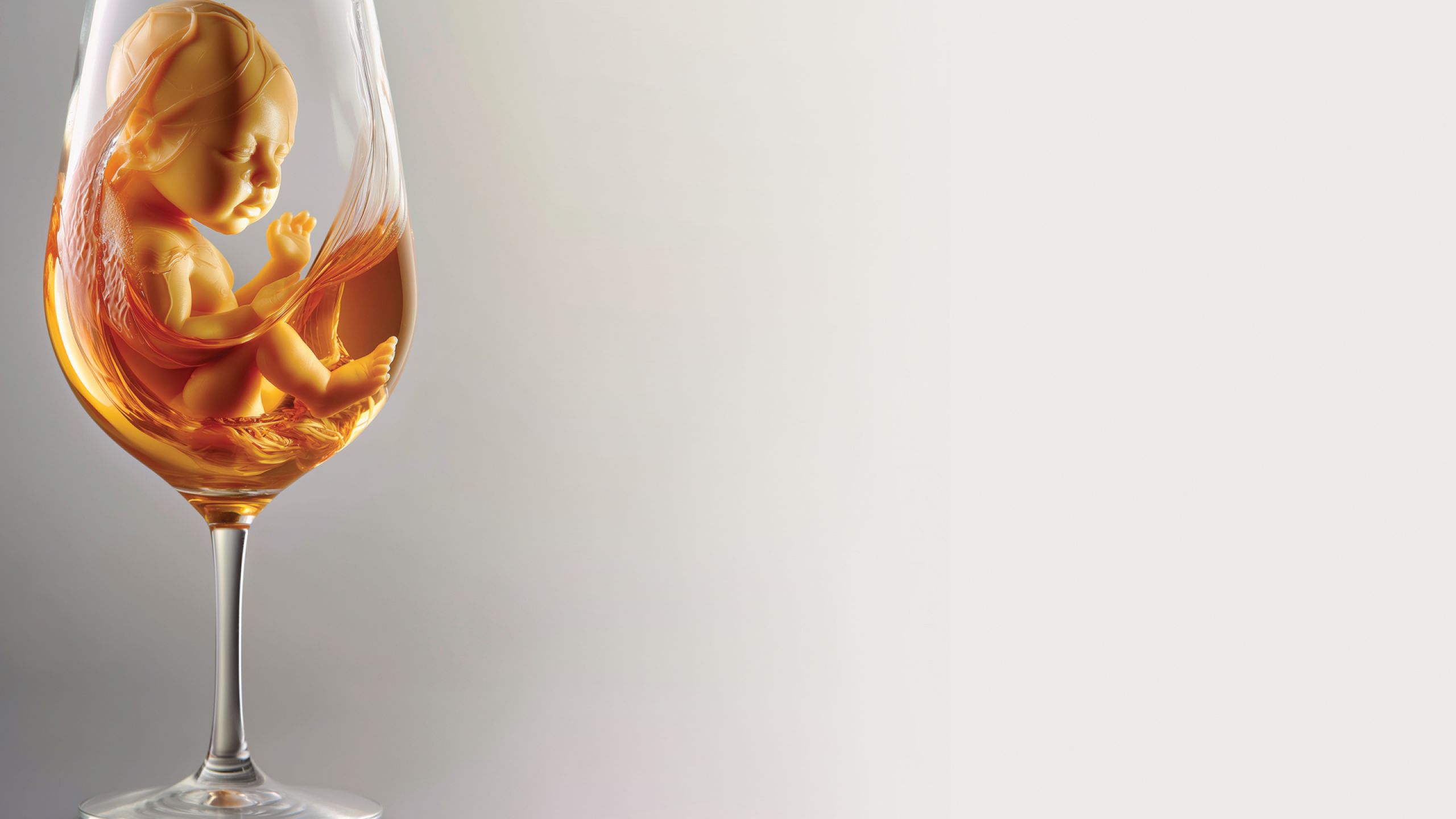Alcohol and Birth Defects: What Is the Father's Responsibility?

In This Article
-
The wide range and severity of symptoms in relation to birth defects point to factors that cannot be explained only with the mother’s alcohol consumption.
-
Paternal alcohol use negatively affected the offspring’s brain, skull, and facial landmarks, such as the eyes, nose, and mouth.
I remember my father once warning a distant cousin who used to drink a lot. “Son,” my father said, “you will soon get married; you will have children. You should stop drinking.” The cousin replied: “Uncle, it is not me who will be pregnant. It is harmful when the mother drinks. What’s the harm when I drink?” My father’s concern was not because of biological harm, but to warn our cousin that he had to give up drinking to be a role model to his children. But we now know that the father’s drinking habits have a major influence on the baby during pregnancy, perhaps even more than the mother’s.
“Fetal alcohol syndrome” (FAS) is a disorder that occurs due to alcohol consumption during pregnancy. Consequently, pregnant women are warned to avoid alcohol to protect their baby from FAS and other similar disorders. According to Michael Golding, a professor of physiology at Texas A&M University, birth defects are influenced not only by the alcohol consumption of mothers but also by that of fathers.
“Research clearly shows” writes Golding, “that sperm carry a vast amount of epigenetic information – meaning heritable shifts in the way genes are expressed that don’t result from changes in the DNA sequence – that strongly influences fetal development and child health. Yet most doctors and other health care providers do not take into account the influence of paternal health and lifestyle choices on child development.” According to Golding, “most of the attention is given to the mom’s drinking while pregnant,” but his team’s studies demonstrate that “male drinking before pregnancy is a plausible yet completely unexamined factor.”
Keeping men out of the equation in relation to birth defects – simply because the baby was developing in the mother's womb and feeding through the umbilical cord – also comes in contrast to the fact that men drink more than women and the likelihood of men developing alcohol-related disorders is as much as four times. According to the CDC (Centers for Disease Control and Prevention), “men have higher rates of alcohol-related hospitalizations, about two-thirds of death from excessive drinking are among males,” which are only two of a long list of problems that place men at higher risk.
“One in twenty schoolchildren in the United States may exhibit some form of fetal alcohol spectrum disorders” reports Dr. Golding, and for many years this was considered to be the fault of mothers. Even when mothers said they did not consume any alcohol, the general assumption was that they were lying. But another point to consider is that reported drinking levels were not directly correlated with alcohol-related birth defects, nor did all women who drank give birth to children with such syndromes. This applies to all diseases; just as not everyone who smokes will get lung cancer, and not everyone who deals with the coronavirus will die from Covid-19, the damage caused by alcohol results from a combination of various genetic and environmental factors.
According to Dr. Golding, the wide range and severity of symptoms point to factors that cannot be explained only with the mother’s alcohol consumption. That’s why he and his team developed a mouse model to see what happens if mom, dad, or both parents drink. So, they studied the mice and recorded results in cases when either or both parents consumed alcohol. They focused on the faces of the mice, for fetal alcohol syndrome is associated with facial abnormalities and reduced growth of the head and brain. Using facial recognition software, Golding and his team analyzed how maternal, paternal, and dual parental alcohol exposures affected the offspring. The results showed that paternal alcohol use negatively affected the offspring’s brain, skull, and facial landmarks, such as the eyes, nose, and mouth. Observations included microcephaly (underdevelopment of the head and brain) and lower birth weight. Alcohol-induced craniofacial (skull and facial bones) abnormalities and growth deficiencies were also found to persist into later life. Additionally, behavioral changes and an increased risk of heart defects were linked to male alcohol consumption.
According to the CDC, no amount of alcohol is beneficial during pregnancy or when trying to conceive, as there is "no known safe amount" of its use. Although the amount and timing of alcohol consumption during pregnancy partially explain the differences in the development of fetal alcohol syndrome, they do not account for the variability in defects and the wide range of symptoms observed in each child. Therefore, it is essential to investigate other contributing factors beyond the mother's alcohol use. Dr. Golding suggests examining paternal drinking habits, which may provide a missing piece of the puzzle. One indicator is that the probability of achieving pregnancy with IVF decreases by up to 50% when the father is a drinker.
When the first studies on maternal exposure to toxins during pregnancy were published in the 1950s, many in the scientific community were skeptical. Likewise, Dr. Golding thinks, some will doubt the effects of paternal alcohol use on child health, and that we will never know if doctors do not start asking the fathers if they have been drinking.
Previously, the blame for the imperfect development of innocent children was placed solely on the mother; now the fathers will understand that they share the same responsibility. Shouldn't both mothers and fathers reconsider their actions, recognizing that they are playing with the fate of their innocent offspring, whom they have brought into the world, and endangering them with their own hands?
Resources
- N. Thomas et al. “Paternal alcohol exposure and dental-facial anomalies in offspring”, The Journal of Clinical Investigation, 2023, 133 (19): e174216.
- Golding, “Fathers’ Drinking May Affect Fertility and Fetal Brain Development”, The Conversation, November 21, 2023.
- https://www.cdc.gov/alcohol/fact-sheets/mens-health.htm









